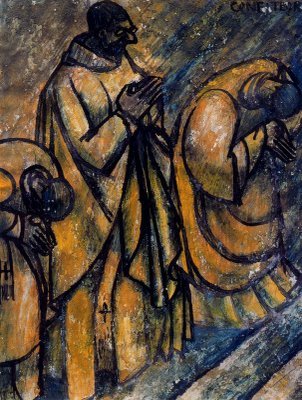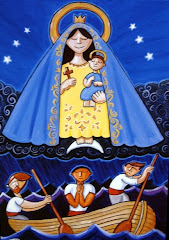
The Holy Sacrifice of the Mass

The Lamb that was slain is worthy to receive power and divinity and wisdom and strength and honor and glory and benediction. And every creature which is in heaven and on the earth and under the earth, and such as are in the sea, and all that are in them, I heard all saying: To him that sitteth on the throne and to the Lamb, benediction and honor and glory and power, for ever and ever. And the four living creatures said: Amen. And the four and twenty ancients fell down on their faces and adored him that liveth for ever and ever. (The Apocalypse .5 12-14)
